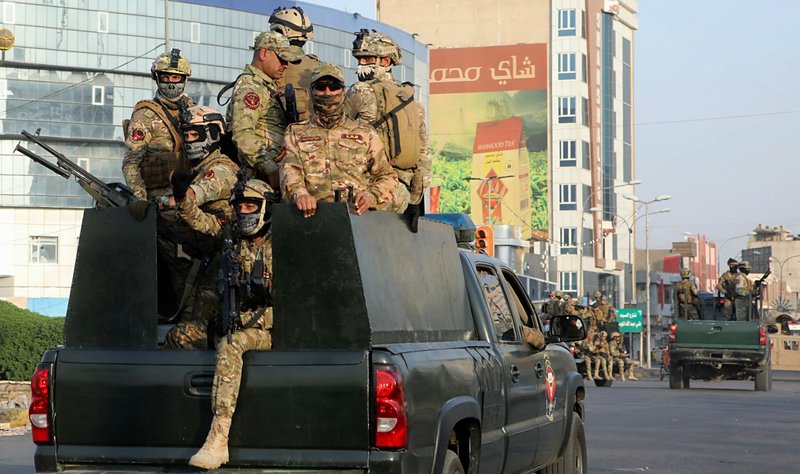Protests erupt in southern Iraqi city of Basra
Oct 16, 2018
Originally published 13 September 2018
Recently, Basra, Iraq has been a tumultuous scene of chaos sparked by infuriated citizens. According to a story published on Sept. 5 in The Washington Post, protests started in July due to “spotty electricity, undrinkable water, unemployment, and frustrations” with the Iraqi government. The actions committed by Iraqi security forces towards protesters has started an uproar of its own.
The timeline of these protests is short, as they began on Sept. 3. A story published by CNN on Sept. 5 shows demonstrators that were seen carrying the Iraqi flag-draped coffin of protestor Mekki Yasser; Yasser’s family and friends claimed that he lost his life while protesting.
On Sept. 4, five people were killed and 68 other demonstrators were injured; this includes “41 civilians and 27 military personnel,” stated CNN.
In reaction to the violence, demonstrators haven’t been protesting peacefully. Video footage from Sept. 4 shows tear gas canisters being thrown into “a government compound,” along with “the governorate building aflame while heavy gunfire is heard in the background,” according to CNN. Warning shots were fired and tear gas was administered by forces in response.
To further show disdain for their government, on Sept. 5, protestors “threw Molotov cocktails at the [Basra governorate] building,” according to activist Kadhtem Sahlani. This was done in reaction to government forces spraying protestors with tear gas.
As the fervor of activists increased, so did the demand for change. An additional issue that has been voiced is the disapproval of “prolonged power cuts, contaminated water that has sent hundreds to the hospital, and sanitation problems,” as stated by CNN.
There are also reports, according to The New York Times, that several people attacked an Iranian consulate in Basra. Protestors shouted at the consul over the influence of Iranian politics over southern Iraq.
The death toll has risen to seven people, as of Sept. 6. CNN reported that official forces are also responsible for 21 people being wounded during sprays of live rounds.
Justine Lindemann, a professor in the Political Science department, weighed in on this issue, “We in the U.S. are not unaccustomed to protests fighting for what, on paper, might seem like very fundamental rights. We are also not immune to similar human rights abuses and social and economic problems that these Iraqi protesters are drawing our attention to.”
Lindemann continued by saying that “true democracy is challenging, if not impossible, but also worth fighting for. I hope that the international community can successfully pressure the Iraqi government to ensure their citizens’ right to participate in politics through protest.”
Editor’s Note: Information from CNN, The New York Times and The Washington Post was used in this report.












